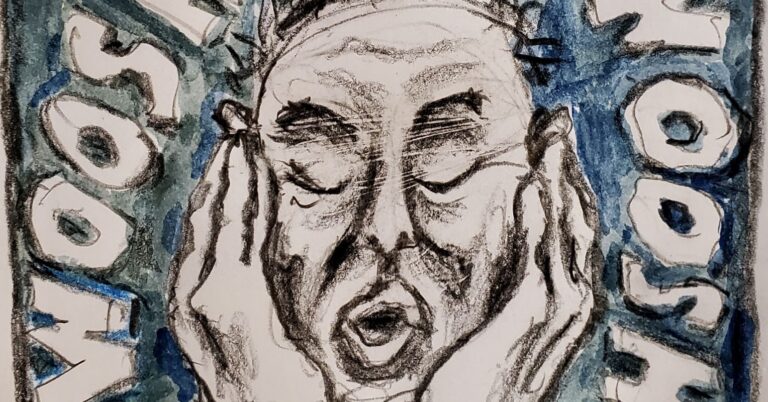“It must be something else.” This is a comment I hear often from those experiencing significant depression. While it is true that depression often travels with accomplices (the most typical of which are anxiety disorders, OCD, and PTSD), people often underestimate how intense a depressive episode can be. In our culture, the term depression is sometimes unfortunately used outside its clinical context. Someone might say they feel “depressed” because it’s raining or because the Cardinals are losing. However, depressive disorders can be quite severe and are never something to be dismissed.
According to the World Health Organization, depression is the leading cause of disability in the world (Friedrich, 2017). Around 31 percent of individuals diagnosed with major depression and 34 percent of those with bipolar disorder will attempt suicide within their lifetime (Dong et al., 2019; Dong et al., 2020). Of all psychiatric diagnoses, depression is most associated with death by suicide. Depression can be life-threatening.
Severe depression is also sometimes linked to alterations in sensory and information integration called psychosis. This particular type of psychosis tends to take on a dark, depressive-congruent quality. For example, a person may experience persecutory delusions, such as a belief that the people around them hate them and are trying to harm them, or they hear unkind voices. As many as 10 percent of individuals with major depressive disorder (Dold et al., 2019) and 63 percent of those diagnosed with bipolar will experience psychotic features (Aminioff et al., 2022).
It is important not to underestimate depression. Yet, many recover from even the most severe manifestations of depression. There are more interventions available now than at any time in history, as well as many in research. Psychotherapy and medications are often first-line treatments.
If therapy with one therapist or with one modality hasn’t been helpful, it’s important to know that a wide variety exists. Evidence-based therapies for depression include cognitive behavioral therapy, acceptance commitment therapy, psychodynamic therapies, interpersonal therapies, dialectical behavioral therapy, and many others. Sometimes, we luck out and meet the “right” therapist for us on the first try, but that does not always happen.
In addition, interventions such as transcranial magnetic stimulation, ketamine-based treatment, and vagus nerve stimulation are available for those experiencing treatment-resistant depression.
Getting Through a Major Depressive Episode
There is hope. What follows is a set of strategies for getting through a major depression.
1. Know That It Will Not Always Be This Way
When in a serious depression, it is hard to remember having ever felt another way. Similarly, looking back during times of health, the experience of depression often feels foreign. Most depressive episodes are temporary, and even within a long-lasting depressive episode, there are usually moments of happiness. Remember that.
If it helps, look over pictures from times when you may have felt better. When you are healthy, write a note of encouragement to yourself for times when you might not feel that way. Depression doesn’t last.
2. Ask for Help
Asking for help is difficult. If you are already receiving mental health treatment, sometimes asking for help means asking for more or different help than you are getting. If you are in a crisis wherein you are having thoughts of harming yourself, this might mean reaching out to crisis services like the 9-8-8 suicide prevention lifeline. If not, a therapist, psychiatrist, or even primary care physician can help. Asking for help might also mean reaching out to your natural support systems of friends, family, or spiritual support.
To find a therapist near you, visit the Psychology Today Therapy Directory.
3. If You Can’t Get Help the First Place You Ask, Keep Trying
Sometimes, we ask for help and get told “no” in ways. For example, your therapist might not have an opening for two weeks, or the inpatient program you are seeking might not have “beds” available. Keep trying. The fact that you are reaching out in itself is an act of defiance against your depression.
4. Seek Meaning
Even in the midst of a depressive episode, one can also often still find meaning in small things or take steps toward their values. In his book Man’s Search for Meaning, psychiatrist Victor Frankl writes of his time in a concentration camp, “The one thing you can’t take away from me is the way I choose to respond to what you do to me.” Depression is an oppressive force. Find what you can still do. Look for opportunities to live how you see as meaningful.
Depression Essential Reads
5. Look for Little Good Things
A cup of coffee. Watching the squirrels play in the yard. A hug from your partner. Depression can place a cloud over your sense of joy, yet you may still find that you can enjoy the smallest things. Latch onto these.
Be present; let yourself take it in. These things can help get you through
6. Remember That All You Have to Deal With Is Today
Depression can give you a fun-house view of all the worst possibilities in the future. All you have to tackle is right now. A mantra of “all I have to get through is today” can guide you through those darkest days.
7. Look for Stories of Others Who Have Overcome This
Several courageous individuals in recovery from mental health challenges have shared their stories. Search these out. You might be surprised by what you relate to and how not alone you are.
8. Refuse to Isolate Yourself
Depression thrives in isolation. It can be easy to turn off your phone and hibernate for some time. Don’t. Act opposite to those urges to hide by surrounding yourself with supportive people. Spaces like the National Alliance on Mental Illness and the Depression and Bipolar Disorder Alliance are places where you can learn from others who have been there.
9. Remember Your Reasons for Life
What makes life worth living? For many, family and friends, hope for the future, wanting to see what happens, a belief that they will find something worth living for in the future, or even spite make the list. Remind yourself of these reasons. Write them down. Hang up pictures of people you are close to or symbols that connect to it. Get a tattoo of it if you need to. Give yourself as many reminders as you can of the ways life is worthwhile.
In Closing
While depression is nothing to make light of, there is always hope. If you are feeling depressed, know that you are not alone. Help is available. You can survive this depression.




















+ There are no comments
Add yours